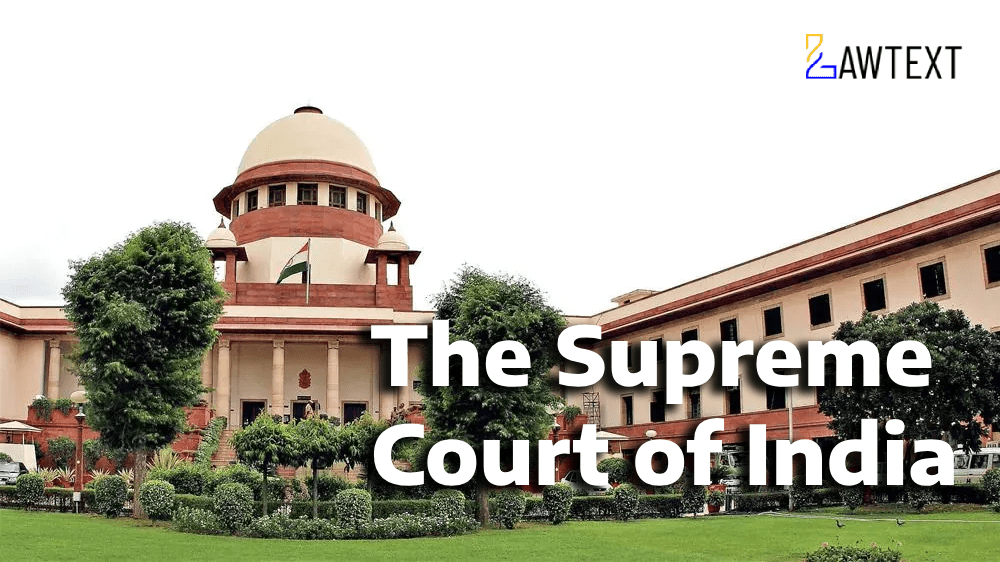CASE NOTE & SUMMARY
The Supreme Court upheld the High Court and Trial Court decisions concerning the partition of property under the Marumakkathayam system, a matrilineal customary law followed in parts of Kerala. The Court dismissed the appellants' contentions, reaffirming that the properties in question were Tharwad properties (joint family property) and not individual properties, thus subject to partition among all members of the family unit (Thavazhi). It also provided clarity on when property retains its Tharwad nature and when it becomes separate.
1. Case Introduction:
The case involves disputes regarding partition and possession of properties under the Marumakkathayam law. Appellants (original defendants) challenged the concurrent findings of the Trial Court and High Court regarding the Tharwad nature of two properties (Item No. 1 and Item No. 2).
2. Legal Context - Marumakkathayam Law:
The judgment extensively discusses concepts like Tharwad (joint family), Thavazhi (sub-branches), and Karanavan (family manager), emphasizing matrilineal inheritance, where property devolves through female descendants.
3. Disputed Properties:
- Item No. 1: Gifted property, divided earlier into shares for family branches. The dispute arose over its status as Tharwad property.
- Item No. 2: Mortgaged property, claimed by appellants to be individual property (Puthravakasam). Courts consistently recognized it as belonging to a Thavazhi.
4. Key Issues for Adjudication:
- Whether partitioned property retains Tharwad characteristics.
- Whether Item No. 2 could legally pass to the descendants of Parukutty Amma.
5. Lower Courts' Decisions:
- The Trial Court declared the properties as Tharwad property and issued a preliminary decree for partition.
- The High Court upheld the Trial Court’s findings, rejecting claims of individual ownership and recognizing joint family status.
6. Supreme Court Analysis and Findings:
- On Item No. 1: It reaffirmed the High Court's conclusion that the property remained Tharwad property, as evidenced by earlier partition deeds involving family branches.
- On Item No. 2: The mortgage deed and other documents established that the property belonged to the Thavazhi, rebutting claims of exclusive ownership.
7. Ratio and Interpretation:
The Court clarified that:
- Properties acquired in the name of a female and her children as a natural unit under Marumakkathayam law are presumed to be Tharwad properties.
- A single individual inheriting property does not automatically hold it as Tharwad property unless it involves a group.
8. Prospectivity of Judgment:
The minority view on property devolution after partition was upheld, but its application was restricted prospectively to avoid disturbing concluded or ongoing transactions.
Acts and Sections Discussed:
- Madras Marumakkattayam Act, 1932:
- Section 3(c): Definition of Karanavan.
- Section 38: Rights of partition for Thavazhi and Tarwad members.
- Hindu Succession Act, 1956: Clarification of the legal principles of partition under Section 6.
- Kerala Joint Family Laws: Customary practices and amendments affecting matrilineal succession.
Subjects:
- Marumakkathayam Law
- Tharwad Property
- Partition and Succession
- Supreme Court Judgment
- Matrilineal Customary Law
Citation: 2024 LawText (SC) (11) 221
Case Number: CIVIL APPEAL NO. 2161/2012
Date of Decision: 2024-11-22
Case Title: RAMACHANDRAN & ORS. VERSUS VIJAYAN & ORS.
Before Judge: (C.T. RAVIKUMAR J. , SANJAY KAROL J.)
Appellant: RAMACHANDRAN & ORS.
Respondent: VIJAYAN & ORS.

